Migrant crisis: Activist convoy drives to Hungary
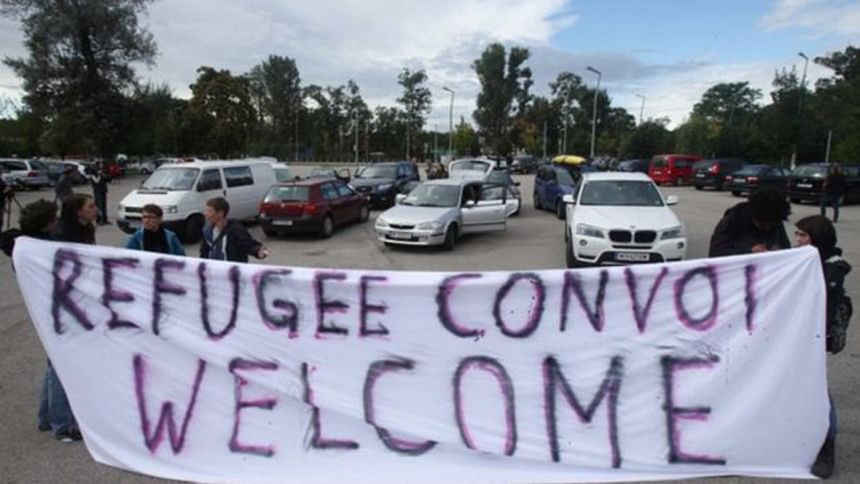
- Thousands of migrants crossed into Austria amid jubilation after Hungary removed restrictions on transit
- Many migrants are now continuing their journey by train to Vienna
- Hundreds have now arrived in Munich to be greeted by applauding crowds
- Germany has promised to grant refugee status to those who fled the Syrian conflict
- EU foreign affairs chief Federica Mogherini has warned that the migrant issue is "here to stay"
A convoy of cars driven by German and Austrian activists has crossed into Hungary to pick up migrants and help them reach western Europe.
Thousands - many of whom initially fled conflict in Syria - have made their way through Austria since Hungary removed restrictions on transit on Friday.
Buses and special trains have been taking them from the Hungarian border to Vienna and on to Germany.
The Pope said every Catholic parish in Europe should host a migrant family.
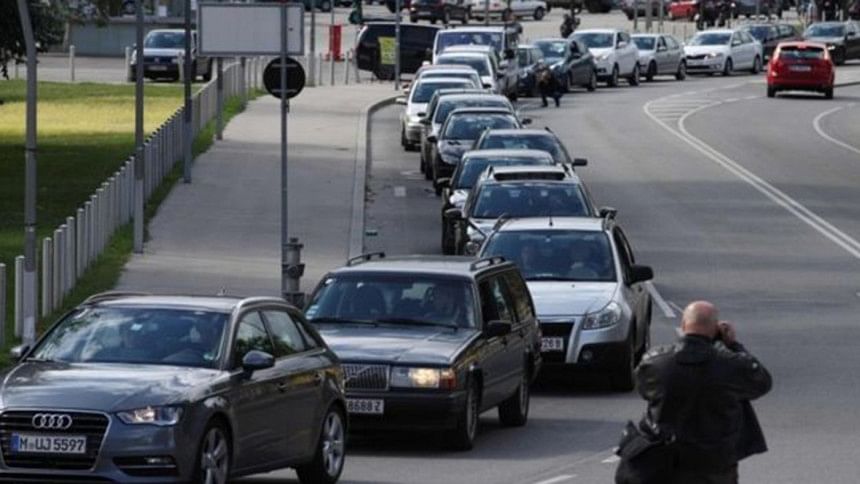
Speaking during the Angelus prayer, Pope Francis appealed for "every parish, every religious community, every monastery, every sanctuary in Europe" to take in a family.
On Sunday a convoy of about 140 cars left Vienna for the Hungarian capital, Budapest, as part of a private initiative dubbed "refugeeconvoy"
One of the Austrian activists taking part, Angelika Neuwirth, told the BBC that their aim was to take them back to shelters in Austrian capital.
"I think this is my duty. I'm a mum, I'm a woman from Austria and I can't close my eyes anymore," she said. "We are all human. No-one is illegal."
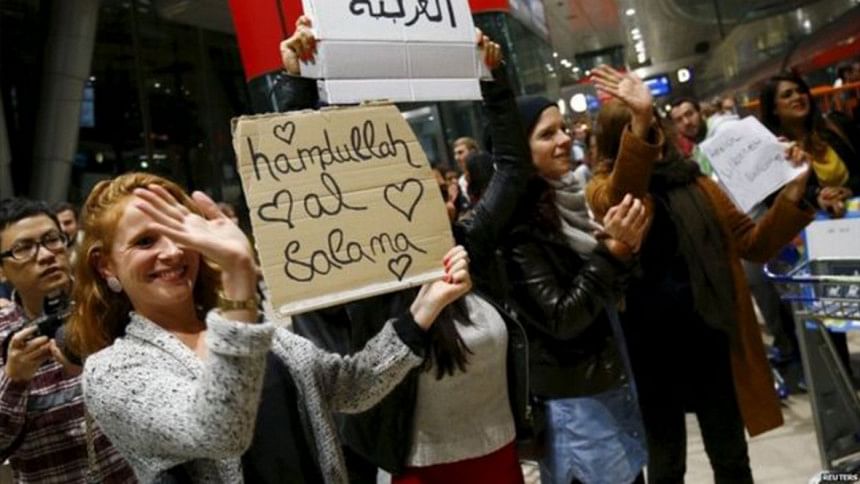
In other developments:
- 114 migrants have been rescued from a fishing boat off Cyprus - Syrians bound for Greece
- UK Chancellor of the Exchequer George Osborne said Britain "needs to do even more" to help Syrian refugees
- The German cabinet is due to meet to discuss the migrant crisis
A key stage in the current crisis was reached on Saturday, when up to 10,000 migrants travelled by bus, train and on foot, to the Austrian border before moving on to Vienna, Munich and other German cities.
After days of confrontation and chaos, Hungary opened its borders with Austria and bussed thousands of migrants to the frontier. Many, frustrated at being prevented from boarding trains in Budapest, had begun to walk along a motorway towards Austria.
'Still valid'
Both Germany and Hungary have said the current measures are aimed at averting a humanitarian crisis, and will not set a precedent.
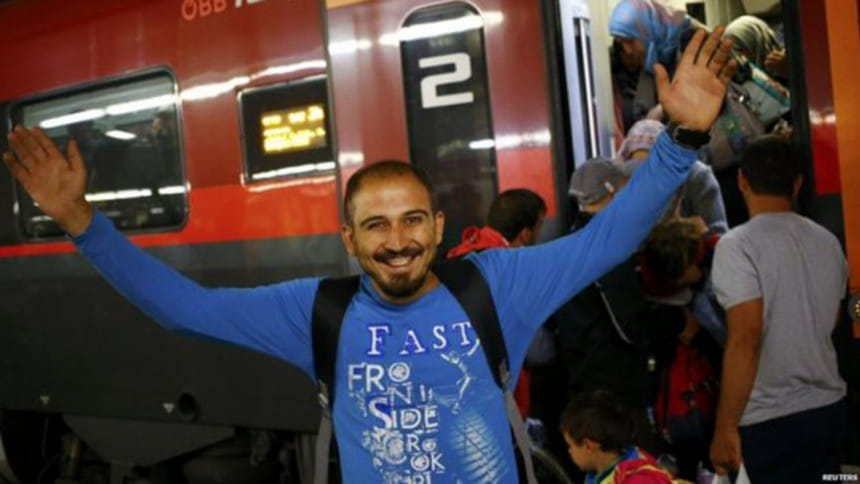
The rules requiring refugees to apply for asylum in the first country they land in "are still valid, and we expect other European Union member states to stick to them", a German government spokesman said.
However, in August Germany waived European Union rules on asylum seekers from Syria, allowing them to register in Germany regardless of where they first entered the EU.
Chancellor Angela Merkel has said Germany can cope with the influx, but there have been disagreements within her coalition government.
Some on the right say allowing so many migrants in sends the wrong signal, but the centre-left Social Democrats praised the move.
Germany is the key destination for arrivals on European shores, and expects to take in 800,000 people this year.
Syrians fleeing a brutal civil conflict are the largest group travelling, followed by Afghans and Eritreans.
There is little sign of a co-ordinated EU response to the crisis, despite more than 350,000 migrants having crossed the EU's borders in 2015 alone.
Germany, backed by the European Commission, has been pushing for a quota system for sharing out newcomers between EU member states.
But this has been opposed by several eastern members.
On Saturday, Hungary said that while it had temporarily relaxed restrictions on the transit of asylum seekers, it was pressing ahead with plans to tighten border controls and could send troops to its southern frontier if parliament agreed.
A border fence is due to completed by 15 September.
Migrant boy remembered
A memorial has been held in Vancouver, Canada for three-year-old Alan Kurdi, his brother Ghalib and mother Rehanna, who drowned trying to reach the Greek island of Kos. The three have family in Canada.
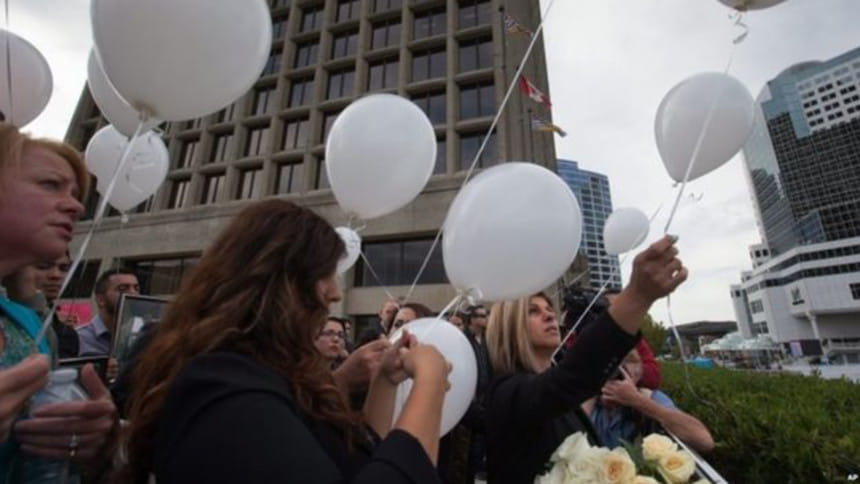
Pictures of Alan's body, washed up on a Turkish beach, prompted widespread anguish.
Members of the Kurdi family were joined by more than 100 people to remember the three Syrians, who died on the journey to Europe after fleeing the conflict in their home country. Canada had earlier rejected an asylum application on behalf of the family.
Tima Kurdi, the boys' aunt, said she was worried about their father Abdullah, who attended the burial for his family in Syria on Friday.
"He's not leaving the graves. He was sleeping the last three days there, on the ground, beside them."

 For all latest news, follow The Daily Star's Google News channel.
For all latest news, follow The Daily Star's Google News channel. 


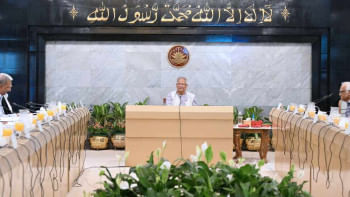
Comments